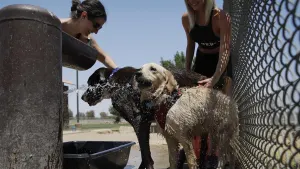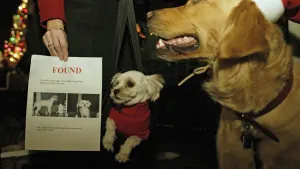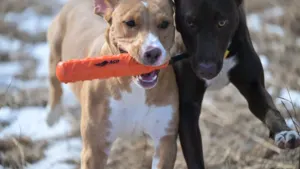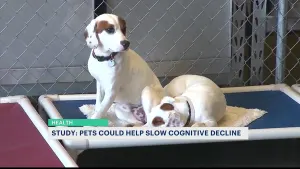More Stories
Ready to take your dog on a trip this summer?
These tips will keep your dog happy during a road trip:
1. Practice
The best way to see if your dog will be OK during a road trip is to practice! Take your dog for a shorter trip to get a sense of how they will do on a longer trip.
2. Keep your dog on schedule
Maintain normal feeding, walks, and medication times as best as you can.
3. Bring long and short leashes
Follow local leash laws, but let your dog explore as much as possible.
4. Don’t let your dog sit in the front seat
It’s unsafe for them and distracts you from driving. According to The Humane Society, the safest way for your dog to travel in the car is in a crate that has been anchored to the vehicle using a seat belt or other secure means.
5. Take your time
Leave early to accommodate frequent breaks for your furry buddy. Stop frequently to allow your pet to exercise and use the “bathroom.” Make sure the collar, ID tag and leash are always on.
6. Don't ever leave your pet alone in a car
A quick pit stop may feel like no time at all to you, but it's too long to leave your pet alone in a car. Heat is a serious hazard. If you see a pet left inside a hot car, take these steps to help them.
7. Don't leave your pet alone outside
When left alone, your pet will try to find you, and could get lost.
8. Visit your vet if traveling far
Depending on where you’re going, your dog may need additional vaccinations.
9. Research pet services in your destination
Find the nearest veterinarian. Find the nearest dog parks and pet friendly restaurants.
10. Keep your dog occupied
They may be less anxious with a treat, toy or even a human companion.
11. Prep a pet-friendly travel kit
Bring food, a bowl, leash, a waste scoop, plastic bags, grooming supplies, medication and first-aid, and any travel documents. Pack a favorite toy or pillow to give your pet a sense of familiarity. Be sure to pack plenty of water, and avoid feeding your pet in a moving vehicle. And the ASPCA says to opt for bottled water - drinking water from an area he or she isn’t used to could result in stomach discomfort.
More from News 12
9:43:53

12 tips to help keep your pets cool during the dog days of summer
0:48

9 steps to take if your ‘fur-ever’ friend goes missing

Submit Your National Pet Day Photos

National Love Your Pet Day Photos 2024
0:24

Study: Having a four-legged friend may slow rate of cognitive decline among older adults
0:37
